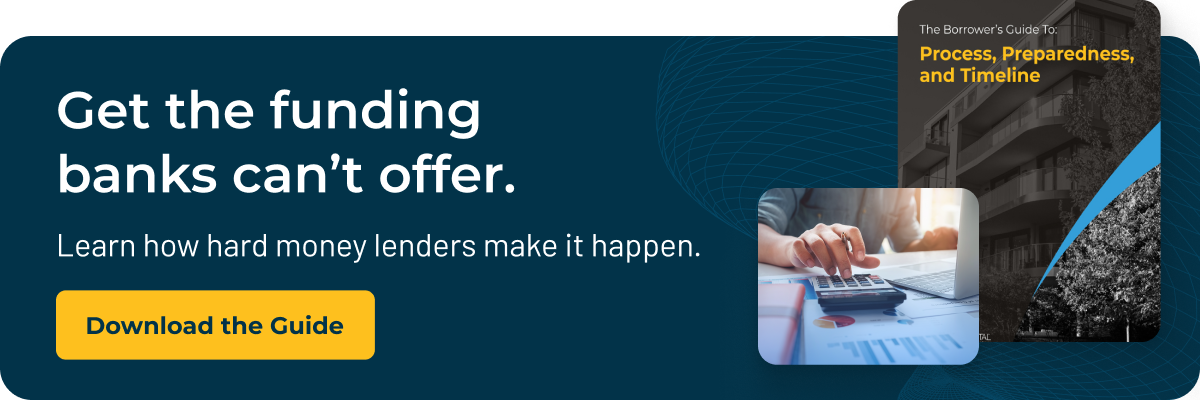If you’re a business owner or investor, you might occasionally need an infusion of cash. Whether it’s to cover regular expenses in times of low cash flow or to make major purchases, having quick access to cash can be critical. A line of credit can be just the safety net you need to make sure you have access to funds when you need them.
What Is a Private Line of Credit?
A line of credit is essentially a set maximum amount against which you can borrow money. A credit card from a bank is an unsecured line of credit based on trust that you will make payments. A private line of credit functions similarly to a credit card, but interest rates are typically lower because real estate is needed for collateral. The unsecured bank credit card is higher-risk, so it comes with a much higher interest rate.
You can get a line of credit from a bank or a private lender. A bank line of credit has more stringent requirements for both income and property, making it difficult to qualify. A private line of credit is secured by real estate, so the requirements are much more flexible.
How Does a Private Line of Credit Work?
Unlike a typical loan, you don't need to have immediate uses designated for the funds for a line of credit. Once it’s set up, you can use your line of credit to cover any business need. You can draw on a line of credit any time and for any reason. Every time you draw, you reduce the remaining amount of cash available, and every time you pay the line of credit down, your available balance increases.
With most private lines of credit, monthly payments are only for any interest accrued on the amount withdrawn. You can pay the balance down in any amount and/or pay on any schedule. However, many lines of credit require you to get to a zero balance with a balloon payment at the end of the loan period, after which you may be able to renew. Some lenders offer a demand line of credit that allows them to ask for full repayment at any time. Be sure to understand the repayment terms when choosing a lender.
What Can You Use a Private Money Line of Credit For?
The major advantage of a private line of credit compared to other types of loans is that you have the flexibility to use it whenever you want. The funds are available for you when you need them, and you don't have to pay interest if you don't intend to use all the money up front.
Lines of credit are available for both personal and business uses, but they are typically separate. Make sure you understand how you intend to use the funds before opening a new line of credit. A private line of credit, however, is often for business purposes only.
Personal line of credit uses include:
- Medical expenses
- Family vacations
- Weddings and other major events
- Home remodels
- Emergencies
- College payments
- Debt consolidation
Possible business line of credit uses include:
- Covering payroll when cash flow is low
- Investing in new equipment
- Expanding operations
- Purchasing, improving, and flipping properties
How to Get a Private Line of Credit
Getting a line of credit from a conventional bank requires a high credit score (700+), proof of income, and a strong history of making timely debt payments. If you don’t meet these criteria, you may be able to get a line of credit from a hard money lender. If you have equity, a hard money lender will provide a business line of credit secured against it.
A hard money line of credit works just like one from a conventional lender. You can use the funds for whatever you want as long as you are able to pay down the balance. Just like a traditional line of credit, a private line of credit uses real estate as collateral, so in the event of a default, the lender can take control of the property.
Get a Hard Money Line of Credit with Socotra Capital
If you are a business owner with a strong personal credit history and a track record of paying down business debts, you are a good candidate for a line of credit or a loan from a conventional bank.
However, if you don’t qualify for a bank loan, you’re not out of options. If you own real estate, getting a hard money line of credit is possible even with a low credit score or inconsistent income documentation or if you have trouble building credit. If you’re concerned about the condition of your property, talk to a lender. In many cases, as long as the property has good value, you can qualify for a private line of credit.
To learn more about all of your hard money lending options, including bridge loans, financing for fix-and-flips, and loans for nonconventional businesses, read The Borrower’s Guide: Process, Preparedness, and Timeline.


